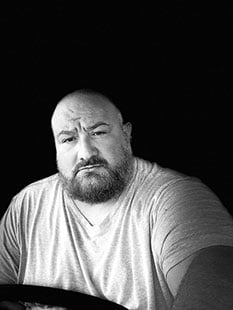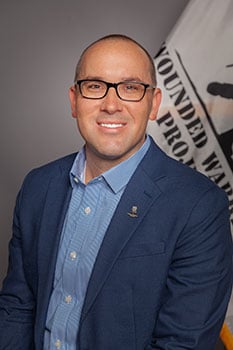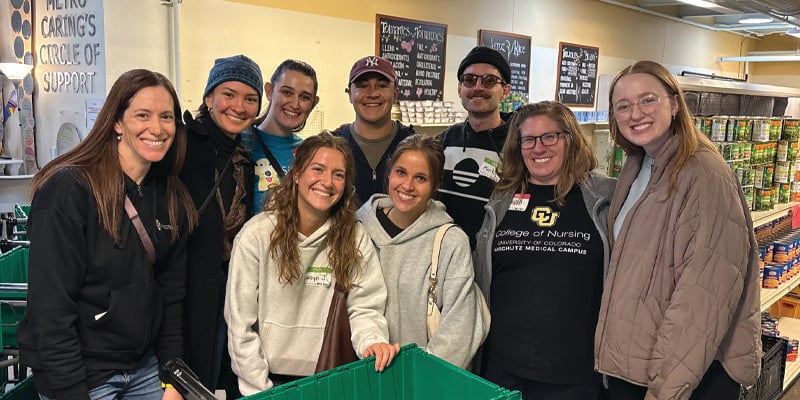Army veteran Joe Fox admits he struggled with his mental health.
It started when he was injured while on deployment to Iraq during Operation Iraqi Freedom. He had multiple close calls, including receiving a traumatic brain injury (TBI) due to severe blasts and improvised explosive device (IED) explosions.

Army veteran Joe Fox. |
He started having seizures, and when he returned to the US and prepared for his next deployment, he couldn’t do day-to-day tasks.
“The Army medically retired me, and what I found out was I’d lost everything that I’d known – my career, my identity…and everything I was doing was related to being a warrior and US soldier,” he says. “Everything I wore was my resume – my uniform had my name on it. You knew my role from what I was wearing.”
Fox was put on the Army’s temporary retirement list in 2006, and that’s when he realized his mental health was suffering.
“I had no support, I didn’t even know I was depressed,” he says. “I was dealing with post-traumatic stress disorder (PTSD), anxiety, and a lot of other things. I was being medicated. I was being treated, but no one could really explain what was going on.”
Fox eventually found himself going from someone extroverted to someone who wouldn’t leave his house and even had thoughts of suicide.
“I found myself falling further and further into a black hole of despair,” he says. “It was a dark, terrible place.”
One of Fox’s friends introduced him to Wounded Warrior Project®, which helped him reconnect with life.
“I went to an event, and it was all about connection and bringing people together,” he says. “That connection was the first piece of me seeking help and looking for ways to improve my mental health. I realized I wasn’t alone.”
“A Call to Action”
Wounded Warrior Project is a non-profit offering care and resources to injured, ill, or wounded post-9/11 service members. The organization’s services include mental health support, career counseling, peer support, and rehabilitative care.
Partnerships for Veteran & Military Health Conference |
|
When: April 25-26 Where: CU Anschutz Medical Campus Who’s Invited: Veterans, service members, their families, and community members Full Schedule and Register: https://nursing.cuanschutz.edu/pvmh |
The organization also focuses on suicide prevention. Wounded Warrior Project's latest survey found more than one in four registered warriors have expressed thoughts or actions of suicide within the past year. Three-quarters of veterans served by the Wounded Warrior Project are experiencing PTSD, anxiety, or depression. And half of those veterans are experiencing two or more of those conditions that are impacting their daily lives.
“This is a call to action for us,” Wounded Warrior Project Vice President for Complex Care John Eaton says.
Eaton will be speaking at the University of Colorado College of Nursing’s Partnership for Veteran and Military Health Conference. The conference, hosted at Anschutz Medical Campus, runs April 25-26.
“This is a great opportunity for us to share the information about how veterans are feeling on this topic and the unique way we’re providing a solution to support veterans,” he says. “Our approach from a warrior’s perspective is taking a community approach. We’ll be talking about the training we go through at Wounded Warrior Project for suicide prevention, early detection, and how to intervene.”

Wounded Warrior Project VP for Complex Care John Eaton. |
Eaton says Wounded Warrior Project focuses on two areas to help veterans treat their mental health: a holistic care model and innovation.
“We’re getting a better understanding of how connected veterans are to their care,” he says. “Many veterans we serve already have clinicians, but what they’re really looking for is a connection. And that’s something they need. It’s the number one requested resource, and it speaks volumes of how important it is to be connected and how damaging the effects of isolation are on mental health.”
Fox says making connections with his fellow warriors had a huge impact. He took part in Project Odyssey®, which is one of Wounded Warrior Project’s mental health programs. It’s a 12-week program designed to increase a veteran’s psychological well-being and resiliency.
“I was able to lean on the support of my peers and Project Odyssey teammates, and it gives a great insight on mental health and what it looks like,” he says. “When you become a part of something (like Project Odyssey), it makes you realize you can still do things, and you’re feeling empowered. That empowerment and connection can drive you to come back and serve others.”
A Full-Circle Moment
Fox went back to school and finished his degree at Colorado State University-Pueblo. When he was looking for a job, he knew he wanted to work with veterans in Colorado Springs. He found his calling and took a job with Project Odyssey as a training manager. He’s been there for seven years and doesn’t plan on leaving.
“Next to my family, serving warriors is the thing that brings me light and joy,” he says. “I think most men and women join the service because they enjoy serving others. You’re serving your country, you’re serving everybody, and I enjoyed it.”
For many veterans, treating mental health is a continuous process, including for Fox.
“I don’t think I’ll ever be done treating my depression, but I don’t have it as a weight or an anchor holding me down,” he says. “My treatment is allowing me to be part of the community and part of an amazing organization. I feel like I have a purpose again.”



